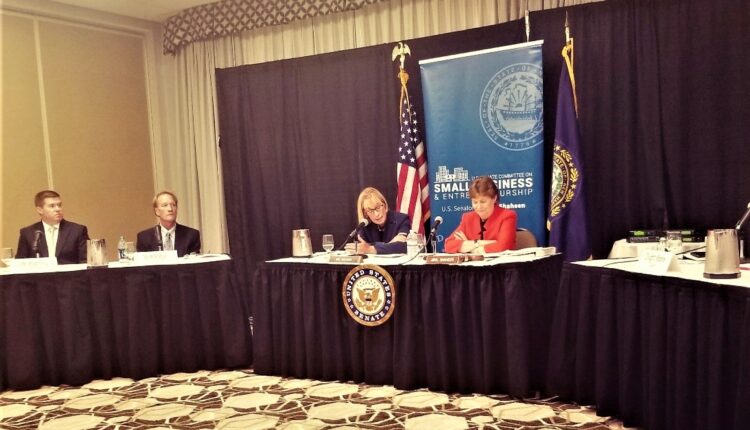
The Void: How the Wayfair Decision Is Affecting Small Business in New Hampshire
By Keegan Shepardson, Region 1 Advocate
Last month, I had the pleasure of attending a Small Business and Entrepreneurship Committee field hearing co-hosted by Senators Jeanne Shaheen and Maggie Hassan of New Hampshire. The hearing focused on the impact of the recent Supreme Court ruling in South Dakota v. Wayfair, Inc., which determined that states with a sales tax are allowed to collect sales tax from out of state businesses, even in states such as New Hampshire that do not have a sales tax. The small business community in the Granite State is not pleased with the outcome of the Supreme Court ruling. Four prominent New Hampshire small business owners from differing industries participated in the hearing to express their thoughts, feelings, concerns and personal struggles with the Wayfair decision.
Each of the business owners was given time to make opening remarks on the impact of the Wayfair decision on their company. The sentiments from the companies, despite their different industries, were surprisingly similar. Each business must now collect a state sales tax when selling online to customers for the state in which the buyer is located. This creates a huge compliance cost due to the complexity of charging the correct sales tax by state. Sometimes, sales tax even varies within the state, so the sales tax in one city may not be the same as another, even if they are both in the same state. Any errors in compliance will result in the business itself losing money. Software company owner Scott Badger noted that “to comply will cost millions per state.”
In order to address the complexity of the rule, small businesses are forced to hire tax attorneys and purchase costly software to help them navigate the constantly changing tax codes on a national level. Rather than dedicating resources to business growth and development, small business owners now are faced with a huge compliance expense. Even though some states are offering free software for businesses to use, John Hennessy, owner of a Littleton, N.H. coin company, stated, “it will cost more in implementation of every one.” As a result, he decided to pay for software himself and hire professionals to help them comply.
All four businesses expressed that they were putting in exorbitant efforts to comply with the Wayfair decision, but none of them felt that they had been successful. The businesses hoped that Congress would give guidance and provide relief to small businesses through legislation. Until then, they will continue trying to comply with the ruling and hope help comes for them soon.
Keegan Shepardson serves as the Region 1 Advocate for the SBA Office of Advocacy, representing small businesses in Connecticut, Maine, Massachusetts, New Hampshire, Rhode Island, and Vermont. Shepardson works with small business owners, state and local governments, and small business associations to bring the voice of Region 1 to Washington DC. He can be reached at Keegan.Shepardson@sba.gov.
